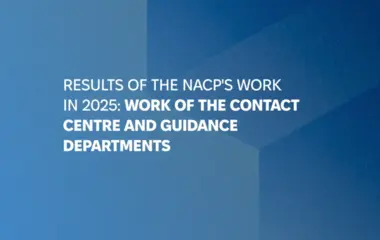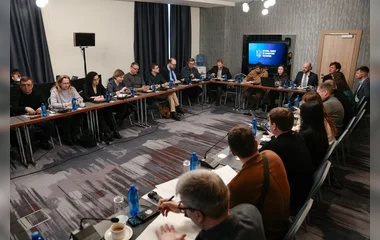The National Agency on Corruption Prevention (NACP) regularly receives a large number of questions related to financial control (declaration), the presence or absence of a conflict of interest, and ways to resolve it. A rapid increase in the number of declaration questions is observed during the annual declaration campaign. For example, during the first three months of 2024, NACP hotline alone received more than 63 thousand calls. This far exceeds the National Agency's capacity to process the requests.
We would like to remind you that providing methodological and advisory assistance in compliance with the legislation on prevention of corruption, advisory assistance in completing declarations of a person authorized to perform state or local government functions, taking measures to identify conflicts of interest, and facilitating their settlement are the main tasks of the authorized unit (authorized person) for the prevention and detection of corruption. This is defined in clause 2 of Section II of the Model Regulation on the authorized unit (authorized person) for the prevention and detection of corruption, approved by the order of the National Agency dated 27.05.2021 No. 277/21 (hereinafter - the Model Regulation).
At the same time, according to a survey conducted by the National Agency Contact Center in June-August 2024, more than 65% of all individuals who had questions that could be answered by an authorized person did not contact the authorized person.
The main reason cited by most respondents was the convenience of getting a telephone consultation at NACP. At the same time, during the annual declaration campaign, waiting for a consultation by the National Agency specialists can take more than 15 minutes, and if all telephone lines are used, the connection may not be made at all.
Given the high workload of the National Agency structural units involved in processing appeals through various communication channels, and in order to save time and improve communication with the authorized unit for the prevention and detection of corruption, in case of questions related to the declaration, conflict of interest, and other questions that fall within the competence of the authorized person, NACP insists on the need to seek appropriate advice from the authorized person for the prevention of corruption. If the issue is not resolved, the authorized person of the organization addresses it to the authorized person of the body to which the organization belongs, in accordance with subparagraph 4 of paragraph 2 of Section II of the Model Regulation, and in the absence of such a person, personally addresses the Contact Center of the National Agency.
To optimize the consultation process, the National Agency Contact Center will provide methodological and advisory assistance on declaration and conflict of interest issues after mandatory consultation with the authorized person for the prevention and detection of corruption. During the call, such a person should be ready to provide additional information to confirm that the authorized person is aware of the issue.
For its part, the National Agency recommends that the authorized units (authorized individuals) for the prevention and detection of corruption create conditions under which it will be convenient for an employee to receive advice on the declaration. The authorized persons should also more actively promote the dissemination of publicly available information on declaration issues and help employees of the institution in certain cases of completing documents.
With this algorithm of actions for obtaining advisory assistance, the work of authorized persons and employees of NACP contact center will become more efficient. After all, interaction in this way will allow the contact center staff and specialists of other NACP departments to focus on advising representatives of authorized departments and persons who do not have designated corruption prevention officers in their institutions.
We remind you that the official website of the National Agency has a section “For Anti-Corruption Authorized Officials” filled with methodological materials aimed at facilitating the work of authorized persons on the prevention and detection of corruption and can be used in their work.









